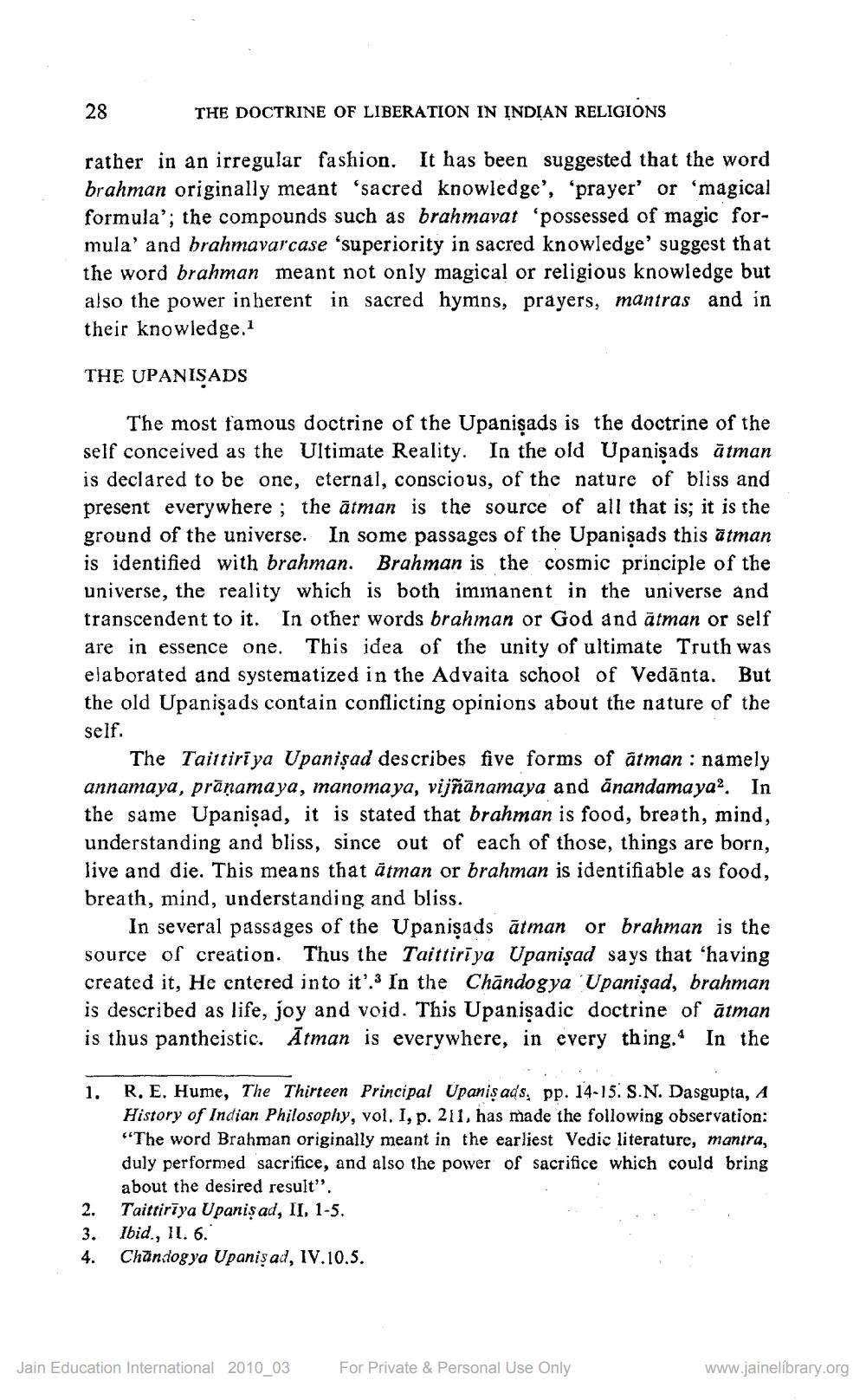________________
28
THE DOCTRINE OF LIBERATION IN INDIAN RELIGIONS
rather in an irregular fashion. It has been suggested that the word brahman originally meant 'sacred knowledge', 'prayer' or 'magical formula’; the compounds such as brahmavat ‘possessed of magic formula' and brahmavarcase 'superiority in sacred knowledge' suggest that the word brahman meant not only magical or religious knowledge but also the power inherent in sacred hymns, prayers, mantras and in their knowledge. 1
THE UPANISADS
The most famous doctrine of the Upanişads is the doctrine of the self conceived as the Ultimate Reality. In the old Upanişads ātman is declared to be one, eternal, conscious, of the nature of bliss and present everywhere ; the ātman is the source of all that is; it is the ground of the universe. In some passages of the Upanişads this atman is identified with brahman. Brahman is the cosmic principle of the universe, the reality which is both immanent in the universe and transcendent to it. In other words brahman or God and ātman or self are in essence one. This idea of the unity of ultimate Truth was elaborated and systematized in the Advaita school of Vedānta. But the old Upanişads contain conflicting opinions about the nature of the
self.
The Taittiriya Upanişad describes five forms of atman: namely annamaya, prānamaya, manomaya, vijñānamaya and anandamaya?. In the same Upanişad, it is stated that brahman is food, breath, mind, understanding and bliss, since out of each of those, things are born, live and die. This means that ātman or brahman is identifiable as food, breath, mind, understanding and bliss.
In several passages of the Upanisads ātman or brahman is the source of creation. Thus the Taittirīya Upanişad says that 'having created it, He cntered into it’.In the Chàndogya Upanişad, brahman is described as life, joy and void. This Upanişadic doctrine of ātman is thus pantheistic. Ātman is everywhere, in every thing. In the
1.
R. E. Hume, The Thirteen Principal Upanis ad's, pp. 14-15. S.N. Dasgupta, A History of Indian Philosophy, vol. I, p. 211, has made the following observation: "The word Brahman originally meant in the earliest Vedic literature, mantra, duly performed sacrifice, and also the power of sacrifice which could bring about the desired result". Taittirīya Upanis ad, II, 1-5. Ibid., II. 6. Chandog ya Upanis ad, IV.10.5.
3.
4.
Jain Education International 2010_03
For Private & Personal Use Only
www.jainelibrary.org




